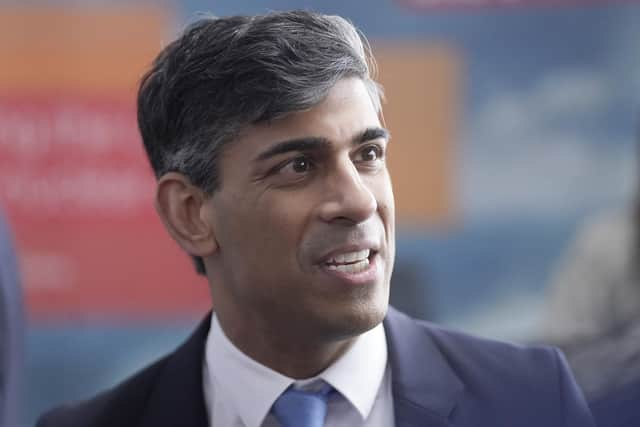How the Government is looking to restore the promise of entrepreneurship - Rishi Sunak
I grew up in a small business. When I wasn’t at school, I’d work in Mum’s pharmacy serving customers, doing the bookkeeping and cleaning the shop. Our pharmacy shaped my beliefs about the economy. That pharmacy was ours; we owned it; we had a stake in its success.
If we worked hard and took pride in our work and provided a good service, business would improve. If we didn’t, it wouldn’t. And that’s how it should be – that’s the promise of entrepreneurship.
Advertisement
Hide AdAdvertisement
Hide AdI know that promise has come under strain. Covid, war in Ukraine, inflation, all caused major disruption and drove up the cost of doing business.


I know things are still tough, but our plan is starting to work. Inflation – more than halved and falling fast. Growth – higher than anyone expected. Debt – on track to fall. But there’s more we need to do to restore that promise of entrepreneurship. So, let me share three big steps we’re taking to help small businesses. First, we’re cutting taxes. Your money is far better spent by you, than by the government. So we’ve increased the VAT threshold to £90,000, for the first time since 2017. Taken a third out of paying any business rates whatsoever and introduced a relief for retail, hospitality and leisure businesses.
That means a small business in England will pay far less in business rates than you would in Wales or in Scotland. And we’re cutting National Insurance because we want to end the unfairness that you pay in tax twice on income from work, but income from other sources is only taxed once.
That’s why our long-term ambition is to simplify the system and end the double tax on work, by abolishing NICs. We’ve already made good progress. For the self-employed we’ve abolished class 2 NICS and cut the main rate by a third, saving a typical self-employed person £650 a year. And we’ve cut NICs for 29 million workers by around £900. That’s a £20bn tax cut for the British people.
Advertisement
Hide AdAdvertisement
Hide AdBut we’re not done yet. We’ll make more progress towards abolition, in the next Parliament.
Our second step to help small businesses is to cut red tape. Since leaving the EU, we’ve revoked or reformed more than 2,000 EU laws with 500 more coming this year delivering more than £1bn of savings for businesses and customers.
We’re also tackling late payments with strict new rules that mean any company bidding for large government contracts must show that they pay their own invoices within 45 days.
And we’re also making it easier to hire apprentices. Apprenticeships benefit young people and the businesses who hire them. But for SMEs, the system can be expensive and confusing, despite huge progress.
Advertisement
Hide AdAdvertisement
Hide AdSo, to ensure funding is available where there is demand for apprenticeships we’re increasing the apprenticeships budget by £40m.
And for small businesses hiring young apprentices we will now fund the cost of their training in full.
Our third step is to make it easier to get the finance needed to start, grow, or invest in business.
An abridged version of a speech by Prime Minister Rishi Sunak at the Business Connect conference.
Comment Guidelines
National World encourages reader discussion on our stories. User feedback, insights and back-and-forth exchanges add a rich layer of context to reporting. Please review our Community Guidelines before commenting.